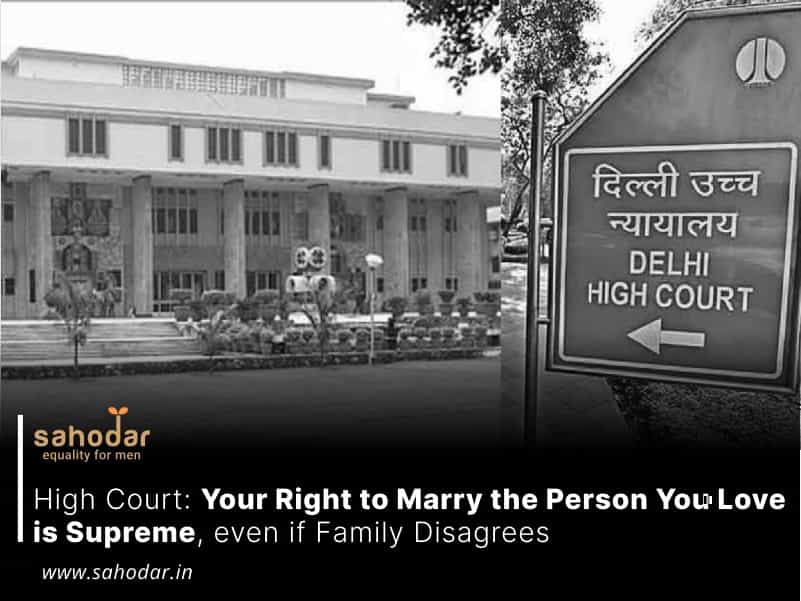“The right of the petitioners to marry a person of their own choice is indelible and protected under the Constitution, which cannot be diluted in any manner whatsoever,” the court said.
In a recent legal pronouncement, the Delhi High Court expounded that the entitlement to espouse an individual of one’s choice, as enshrined within the constitutional framework, retains an immutable character. This inherent right is impervious to familial dissent or objection. The court, in response to a plea for security lodged by a couple encountering familial threats subsequent to their matrimonial union, extended judicial endorsement by granting them police protection.
Justice Tushar Rao Gedela underscored the constitutional imperative incumbent upon the State to furnish protective measures to its citizens, given the paramountcy of this fundamental right. The high court, being an institution of constitutional oversight, dutifully recognizes its role in the furtherance and preservation of the constitutional rights possessed by the couple in question.
“The right of the petitioners to marry a person of their own choice is indelible and protected under the Constitution, which cannot be diluted in any manner whatsoever,” the court said
“There is no doubt about the factum of marriage between the petitioners and the fact that they are major. No one, not even the family members can object to such relation or to the matrimonial ties between the petitioners,” the court asserted while dealing with the couple’s petition for police protection.
The petitioners averred that they solemnized their marriage in April, notwithstanding parental dissent, and have since cohabited harmoniously. However, they have been exposed to persistent threats, predominantly emanating from the woman’s mother and their respective families.
In light of the aforementioned circumstances, the court issued a directive enjoining the State to implement protective measures for both petitioners, with a particular emphasis on the prevention of harm, especially from the woman’s parents and other family members. Additionally, the court mandated the designated beat officer to conduct periodic welfare visits to ensure their security and well-being.
“In case the petitioners have shifted to a place other than the one shown in the memo of parties, the I.O. shall intimate the said SHO of the concerned police station having territorial jurisdiction over the residential address of the petitioners, who shall comply with the present order in letter and spirit,” the court ordered.
“The petitioners shall disclose their present residential address as well as working address to the I.O., who shall not disclose the same to any unauthorised person,” it said.

